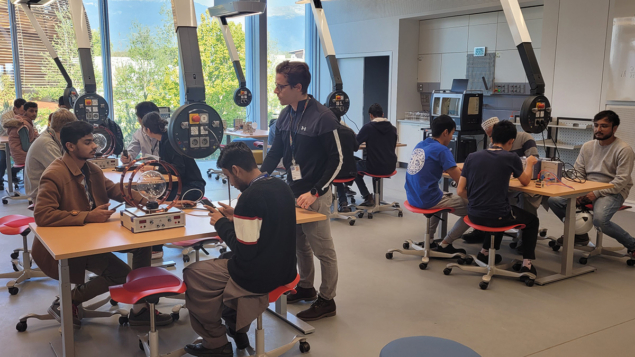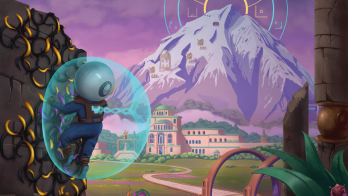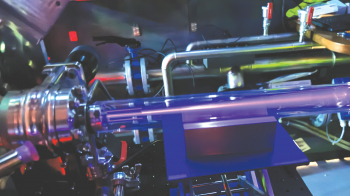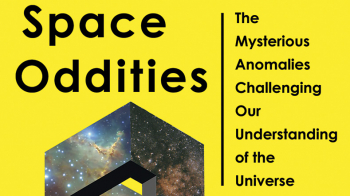CERN is best known for researching the fundamental laws of the universe, but it also hosts a strong programme in physics education research. Sascha Schmeling explains why.

When CERN was founded in 1954, four missions were given to the new organisation: performing fundamental research at the frontier of knowledge; development of innovative technologies to pursue fundamental research; international collaboration for the good of humanity; and education and inspiration for future generations of scientists, engineers and the public at large. The latter mission has been given a powerful new platform in the form of the CERN Science Gateway.
CERN is well known for outreach, most recently via the switch-on of the LHC and the search for and discovery of the Higgs boson. It also trains thousands of people through a variety of student and graduate programmes, ranging from internships, studentships and fellowships to professional training, such as at the CERN Accelerator School, the CERN School of Computing, and several physics and instrumentation Schools. Less well known, perhaps, is CERN’s influential work in science education.
Growth initiatives
CERN offers many professional-development programmes for teachers (see Inspiring the inspirers), as well as dedicated experiment sessions at the former “S’Cool LAB” (reincarnated in the Science Gateway educational labs, see Hands on, minds on, goggles on!) and the highly popular Beamline for Schools competition. These efforts are also underpinned by an education-research programme that has seen seven PhD theses produced during the past five years as well as 82 published articles since the programme began in 2009. This is made possible by the significant contributions of doctoral students, who make up much of the team, and cooperation with their almae matres in CERN’s member states. In addition, CERN is the publisher of the multilingual international journal Progress in Science Education.
The question “what is science education?” probably has more answers than the number of science educators in Europe. Nevertheless, the nature of science – the scientific method itself, without which we could not formulate science correctly, reproducibly and understandably – is a basic principle. Teaching the nature of science as the basis and conveying scientific results as examples is widely regarded as the best way to inspire learners young and old, although methods vary. A frequently asked question in this respect is: what to educate?
The traditional answer, which will be familiar to people who went to school in the 1970s or earlier, is “pure knowledge”. Later, it was realised that “skills” were important, too. While both remain core to science curricula, “competencies” are now seen as an effective way to advance society. In terms of physics, key topics in this regard are education for sustainable development, quantum physics and its applications, radiation and artificial intelligence.
Fulfilling its mission, CERN strives to reach everyone with its education programmes. The CERN Science Gateway offers exhibitions, large education labs, as well as educational science shows for audiences aged five and above. Education is key to sustainability, and thus to society, so let’s all work together. The CERN team is open to your proposals!








